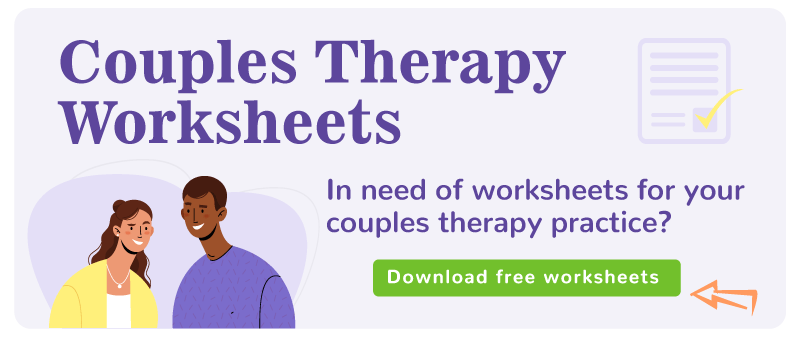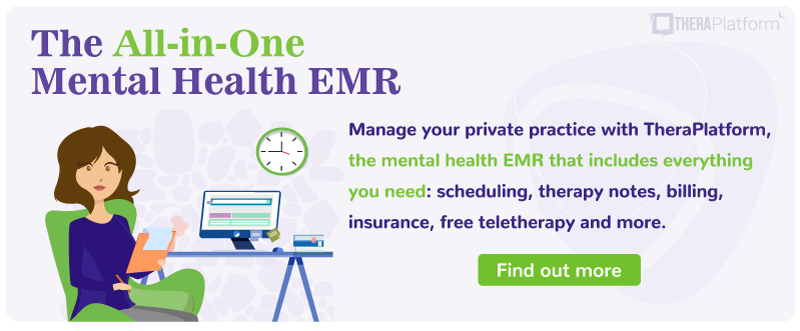Behavioral Health Types Of Therapy
The Gottman method

Gottman method development
The Gottman method is a theory of how to improve relationship stability and and was established by husband and wife psychologists Dr. John Gottman and Dr. Julie Schwartz Gottman using research and clinical experience. Dr. John Gottman’s area of expertise is marital stability, while Dr. Julie Gottman focuses on marriage, adoption, sexual harassment, and parenting. Together, they run the Gottman Institute that helps couples who need relationship repair and train mental health professionals who work with couples.
The method was founded on the Sound Relationship House Theory and what the Gottmans identified to be integral to a great relationship. The walls of the house are made of trust and commitment, knowing that you and your partner think about each other’s needs and interests and are partners for the long run, for better or worse.
The house's foundation is based on what the Gottmans call love maps, each partner’s psychological world, which consists of:
- Their history
- What they stress about
- What they hope for and
- What gives them the most joy.
Shared fondness and admiration, and what the Gottmans call “the antidote for contempt” or the amount of respect and affection shown in a relationship, are also part of the equation.
Turning towards instead of away emphasizes that couples need to build moments of connection and that these little moments of daily life are what genuinely build strong relationships.
Taking a Positive Perspective and approaching problems with positivity, and a focus on repairing the relationship is key. The relationship should always be more important than one person or the other being right. This is important when considering the next principle of the sound relationship house, managing conflict. The Gottmans emphasize the importance of handling what they identify as perpetual, day-to-day conflicts versus solvable problems that can be resolved.
The final two principles of the house are to create shared meaning and make life dreams come true. These principles encourage couples to understand important perspectives about their relationship and create an environment that allows both people to talk openly about their hopes, values, and dreams.
Method applications
The Gottman method has applications for all types of relationships regardless of sexual orientation, cultural background, or socioeconomic status. The goal is to:
- Improve respect and communication
- Increase affection and intimacy
- Assist in conflict resolution and
- Create more compassion and empathy in relationships.
The foundation of all relationships, according to the Gottman's theory is understanding each other’s worlds. Anyone who has struggled in a relationship can attest to the truth of this. The root of most conflicts comes from a lack of understanding of each other’s perspectives. By learning about each other’s viewpoint of the world, conflict is less likely to be a problem in any relationship.
Relationship issues that can benefit from the Gottman method and tend to be addressed in therapy include:
- Poor communication skills
- Frequent conflict
- Couples who are emotionally distanced
- Infidelity
- Financial difficulties
- Sexual difficulties
- Parenting
The Gottmans classify all conflicts in relationships as resolvable or perpetual. That is, they can be solved, or they are something that will be a part of your relationship perpetually in some form or another. While these types of conflicts, cannot be resolved per se, they can be managed, so they don’t cause distance in the relationship.
Start 30-day Free Trial and explore TheraPlatform. HIPAA Compliant Video and Practice Management Software for Therapists.
Gottman method techniques and tools
The first session starts with an assessment, a joint session, and individual interviews. In this assessment phase, couples complete questionnaires that give the therapist information about the relationships and allow feedback to be provided. From these conversations, the therapeutic framework is established, and together the therapist and couple decide how often they will meet and the expected length of therapy.
Interventions are set up to help couples improve their relationships by enhancing their base friendship, their ability to manage conflict better, and creating a shared vision of the world. Additionally, the end goal of therapy is to prevent relapse into poor relationship skills.
Some of the techniques of the Gottman Method focus on communication techniques like avoiding hard starts to discussions, expressing your opinion without expressing judgment or blaming, and using “I” statements.
Other techniques focus on how to control emotions and keep situations from becoming or staying heated like learning how to deescalate arguments, learning how to unflood emotionally, using mindfulness and breathing exercises, and learning how to soothe yourself and your partner.
The heart of the Gottman method is much the same as many other relationship-focused therapies in that it focuses on connections, building your love maps, and creating that shared life vision that connects partners.
Gottman method benefits
One of the ways that the Gottmans’ Method helps couples is by looking at their communication styles, especially during conflict. As anyone who has been in a relationship knows, conflict is inevitable and is a guaranteed side effect of people in frequent close proximity.
Dr. John Gottman talks about the “four horsemen” of marriage, making an analogy to the four horsemen of the biblical apocalypse. These horsemen are:
- Criticism: Attacks on partner’s character, not geared at a specific mistake that can be corrected or grown from.
- Contempt: Feeling that your partner is beneath you, fed by negative thoughts about your partner.
- Defensiveness: Where the partner accused of wrongdoing or hurt attempts to deflect responsibility by making excuses, shifting the focus, etc.
- Stonewalling: Where a partner shuts down and refuses to engage.
Gottman discovered that how a couple makes up after arguing is a huge predictor of success in the relationship and that ridding the marriage of the four horsemen results in 83% of marriages stabilizing over time.
The Gottmans believe that even average couples without large relationship problems can benefit from the methods utilized in their relationship therapy and the Sound House Method. This commitment to cooperative communication, preemptive sharing of each other’s worldviews, and maintaining a connection can help any relationship have a solid foundation and are good bones to build from.
Evidence supporting the Gottman method
The Gottmans have been researching relationships for four decades. Dr. John Gottman has been researching predictors of divorce with Robert Levenson since 1975. In seven long-term studies, they found they could predict couples that would divorce with 90% accuracy using methods to measure empathy, emotion, and connection during conflict. The Gottmans found that they could even predict how long before couples would divorce. Couples who were found to use one of the Four Horsemen typically divorced in an average of 5.6 years after getting married, while couples who were emotionally disconnected during conflict divorced in an average of 16.2 years after marriage occurred.
The Gottmans developed the “love lab” to study the key to creating and maintaining friendship and intimacy in relationships. To combat the four horseman and the emotional detachment problems, the Gottmans developed techniques to overcome and correct these problems in relationships.
Download a free copy of the Four Horseman worksheet now.
What to expect in Gottman method sessions
The first session starts with an assessment which will consist of both a joint session and individual interviews. In this assessment phase, couples complete questionnaires that give the therapist information about the relationships and allow the therapist and couples to create the plan of action
In sessions, specific areas of the method will be of focus. It is important to note that the therapist will not take sides and tell one partner they are right or wrong. The goal of therapy is to improve the relationship, so the therapist will be on the side of the relationship, not either individual.
As therapy continues and the relationship stabilizes, sessions will begin to spread out to give couples more time to work on their relationship between sessions. The final session will include a discussion about the tools developed and growth for the relationship as well as a plan for any potential problems or relapses. Occasionally, couples will plan to come back for a check-in meeting several months down the road.
The Gottman Method aims to improve the friendship and connection while also teaching techniques and skills to improve conflict management and grow a healthy relationship. This will teach respect and equal partnership as part of the process. While there is no one “right” way to have a relationship and each relationship looks differently, there are some typical behaviors that are considered healthy and unhealthy.
The Gottman Method is not recommended for individuals dealing with physical domestic violence. Couples counseling can help with many issues, but is not recommended for breaking the patterns consistent with physical abuse as this would need to be addressed by a domestic violence specialist, a shelter, or the legal system as there are specific treatments and programs to work on this behavior.
For more information
The Gottman Referral Network provides training to mental health professionals looking to understand this method further.
Mental health teletherapy for couples can potentially increase the likelihood that couples will utilize new skills learned in sessions as well as provide a comfortable setting and make sessions more accessible.
Interested in learning more about using teletherapy for your private practice? TheraPlatform, an all-in-one EHR, practice management and teletherapy tool was built for therapists to help them save time on admin tasks. Sign up for TheraPlatform’s risk-free, 30-day trial. No credit cards. No commitment. Cancel anytime.
More resources
- Minnesota Multiphasic Personality Inventory
- Projective tests
- PHQ-9
- Biopsychosocial assessment
- GAD-7
- Therapy resources and worksheets
- Therapy private practice courses
- Ultimate teletherapy ebook
- The Ultimate Insurance Billing Guide for Therapists
- The Ultimate Guide to Starting a Private Therapy Practice





